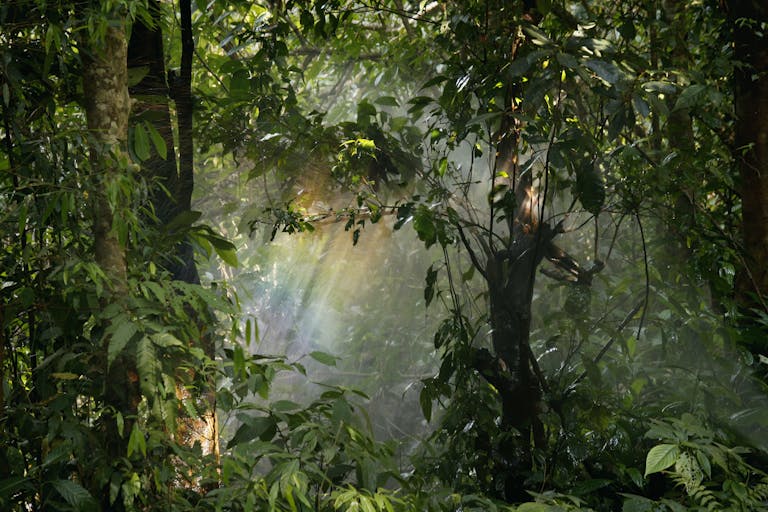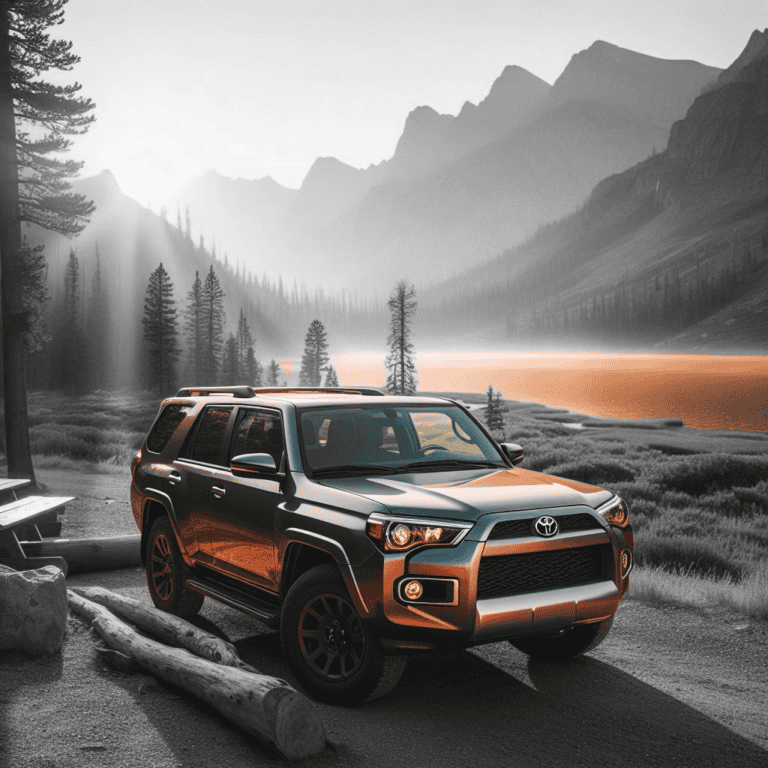Embracing Solitude: The Joys of Solo Camping
Solo camping offers a unique opportunity for individuals to immerse themselves in nature while enjoying the freedom of solitude. One of the most significant benefits is the chance to disconnect from the hustle and bustle of daily life. In a world dominated by constant notifications and social media interactions, stepping away from these distractions can be incredibly refreshing.
When camping alone, you can set your schedule, choose your activities, and truly engage with your surroundings without the influence of others. This autonomy allows for a deeper connection with nature, as you can explore at your own pace and focus on what truly interests you. Moreover, solo camping can lead to profound personal growth.
Being alone in the wilderness forces you to confront your thoughts and feelings without distractions. This introspection can lead to greater self-awareness and clarity about your life’s direction. Many solo campers report that their time in nature has helped them gain insights into their personal challenges, relationships, and aspirations.
Navigating the outdoors alone can foster resilience as one learns to adapt to changing conditions and solve problems independently.
Key Takeaways
- Solo camping allows for complete freedom and flexibility in choosing locations and activities.
- Nature provides a peaceful and quiet environment for relaxation and reflection.
- Overcoming fears and challenges while solo camping can build confidence and self-reliance
- Connecting with oneself and reflecting on life can lead to personal growth and self-discovery.
- Developing survival skills and self-reliance is essential for a successful solo camping experience
Finding Quiet in Nature
Nature can soothe the mind and spirit, and solo camping provides an ideal setting for experiencing this tranquility. The sounds of rustling leaves, flowing water, and distant bird calls create a symphony that calms the senses. In contrast to urban environments filled with noise pollution, the serene atmosphere of a forest or lakeside allows for deep relaxation.
This peacefulness can be particularly beneficial for those dealing with stress or anxiety, as it offers a chance to recharge mentally and emotionally. In addition to auditory peace, the visual beauty of nature plays a crucial role in promoting relaxation. The vibrant colors of wildflowers, the majesty of towering trees, and the vastness of open skies can evoke a sense of wonder and appreciation for the natural world.
Engaging with these sights can help shift focus away from daily worries and foster a sense of gratitude. Many solo campers find that sitting quietly in nature and observing their surroundings can lead to profound peace and reflection.
Overcoming Fears and Building Confidence
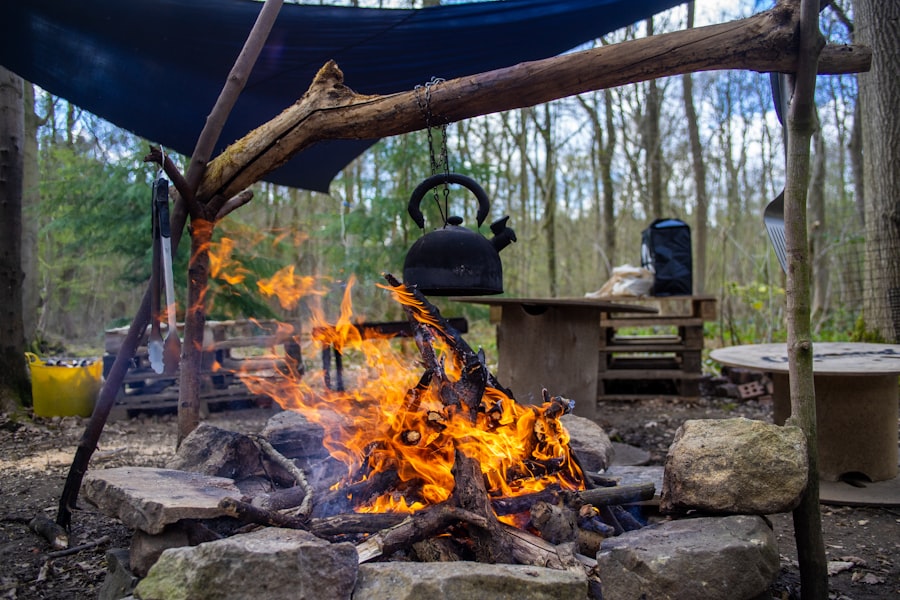
Embarking on a solo camping trip often requires confronting various fears, whether from concerns about safety, navigation, or simply being alone in unfamiliar territory. Facing these fears head-on can be a transformative experience. For instance, individuals initially feel anxious about spending a night alone in the woods and discover they are more capable than they realize.
Setting up camp, cooking meals, and navigating trails fosters a sense of accomplishment that can significantly boost self-esteem. As you tackle challenges during your solo camping adventure, you develop problem-solving skills that translate into everyday life. For example, adapting and finding solutions builds resilience if you encounter inclement weather or an unexpected obstacle on your hike.
Each successful experience reinforces one’s ability to handle adversity, increasing confidence in outdoor settings and personal endeavors. This newfound self-assurance can extend beyond the camping trip, influencing how one approaches challenges in daily life.
Connecting with Yourself and Reflecting on Life
Solo camping provides an unparalleled opportunity for self-reflection. Away from the distractions of modern life, individuals can take the time to ponder their goals, values, and relationships. The solitude allows for deep contemplation without interruptions, enabling you to explore your thoughts more freely.
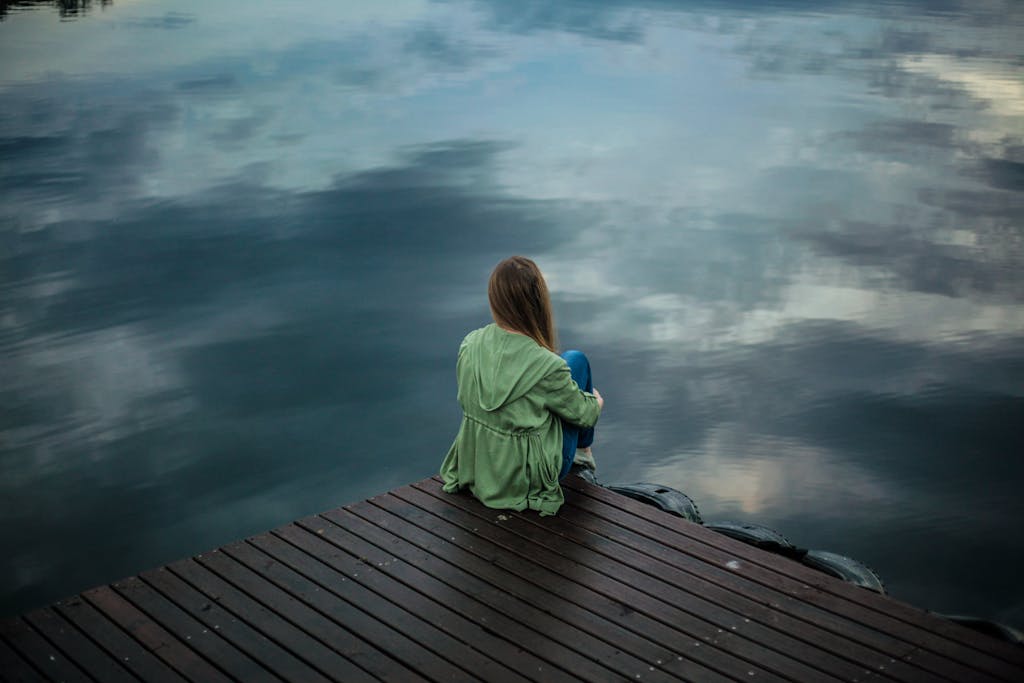
Many campers find that journaling during their trip helps articulate their feelings and insights, creating a tangible record of their reflections. The natural environment also catalyzes introspection. The beauty and simplicity of nature often prompt individuals to consider what truly matters in their lives.
For instance, sitting by a tranquil lake at sunset may inspire thoughts about personal fulfillment or the importance of nurturing relationships with loved ones. This connection with nature can lead to a greater appreciation for life’s simple pleasures and a renewed sense of purpose.
Developing Self-Reliance and Survival Skills
One of the most practical benefits of solo camping is the opportunity to develop essential self-reliance and survival skills. You must rely on your knowledge and abilities when alone in the wilderness to ensure your safety and comfort. This includes setting up a tent, building a fire, cooking meals, and navigating trails.
Each skill learned enhances your confidence in your ability to thrive independently. Moreover, solo camping often presents unexpected challenges that require quick thinking and adaptability. For example, you must assess the situation and respond appropriately if you encounter wildlife or face sudden weather changes.
These experiences teach valuable survival skills and reinforce the importance of preparation and resourcefulness. As you become more adept at handling various situations in the wild, you cultivate a sense of empowerment beyond camping into other areas of life.
Enjoying the Freedom of Independence
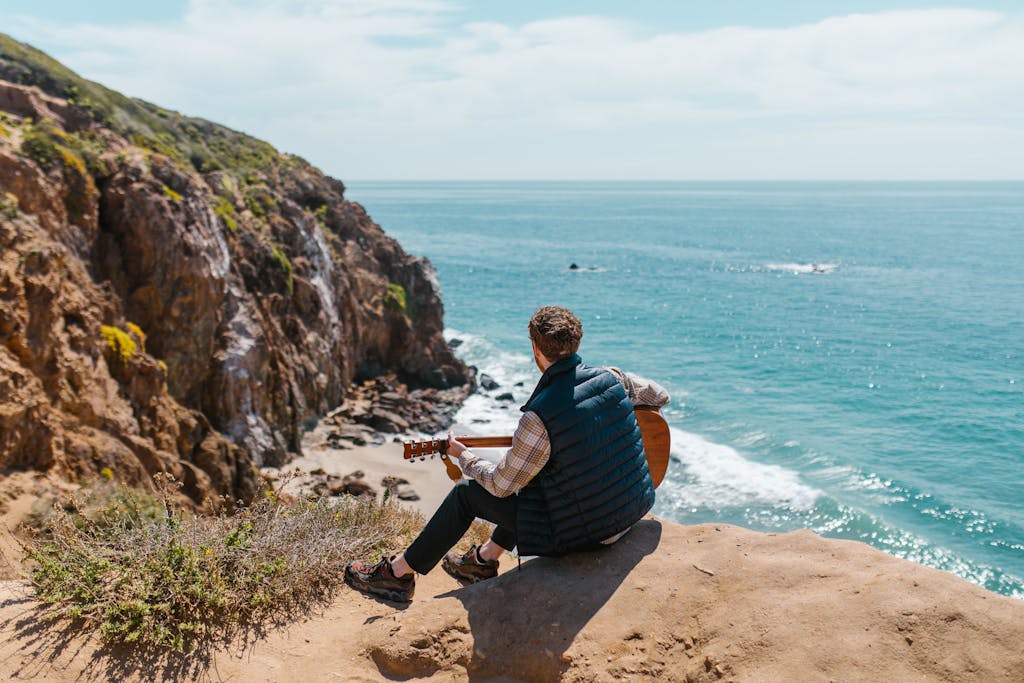
One of solo camping’s most appealing aspects is the independence it offers. You have complete control over your itinerary—where to go, what to do, and how long to stay in one place. This freedom allows for spontaneous exploration; if you discover a beautiful spot along the trail that captures your interest, you can linger there without worrying about accommodating others’ preferences or schedules.
This independence also fosters creativity. With no one else around to influence your decisions or activities, you can engage in pursuits that resonate with you. Whether painting landscapes, practicing photography, or simply meditating by a stream, solo camping encourages self-expression in ways that may not be possible in group settings.
This creative freedom can lead to new hobbies or interests that enrich your life long after the camping trip has ended.
Embracing the Challenge of Solitude
While solitude can be daunting for some, embracing it during solo camping can lead to profound personal growth. The initial discomfort of being alone often gives way to a deeper understanding of oneself. As you spend time in solitude, you may confront feelings or thoughts that have been suppressed or overlooked daily.
This process can be challenging but ultimately rewarding as it allows for healing and self-discovery. Additionally, solitude provides an opportunity to cultivate mindfulness. Without external distractions vying for your attention, you can practice being present at the moment—whether it’s savoring the taste of a meal cooked over an open fire or fully experiencing the sensations of hiking through diverse terrains.
This mindfulness enhances your camping experience and equips you with tools to manage stress and anxiety in everyday life.
Tips for a Successful Solo Camping Experience
Preparation is key to ensuring a rewarding solo camping experience. Start by choosing a campsite that aligns with your skill level and comfort zone; beginners may prefer established campgrounds with amenities, while more experienced campers might seek out remote locations for solitude. Researching the area beforehand will help you understand potential hazards, such as wildlife encounters or weather patterns.
Packing wisely is also crucial for a successful trip. Bring essential gear such as a reliable tent, a sleeping bag suitable for the season, cooking equipment, and navigation tools like maps or GPS devices. Additionally, consider packing items that enhance your experience—such as a journal for reflection or art supplies for creative expression.
Always prioritize safety by informing someone about your plans and expected return time. Lastly, embrace flexibility during your trip. While having a plan is essential, being open to spontaneous changes can lead to unexpected adventures and discoveries.
Whether taking an unplanned detour on a hike or spending an extra night under the stars due to favorable weather conditions, these moments often become cherished memories that define your solo camping experience.
If you’re considering solo camping, you may also be interested in learning about the best camping stove options to bring along on your trip. This article offers recommendations on portable stoves that are perfect for cooking meals in the great outdoors. Happy camping!
FAQs
What is solo camping?
Solo camping is the act of camping alone, without the company of others. It involves setting up a campsite, cooking meals, and spending nights in the wilderness or at a designated camping area.
Is solo camping safe?
Solo camping can be safe if proper precautions are taken. It is important to be well-prepared, know the area well, and have the necessary skills for camping and outdoor survival. It is also advisable to inform someone of your plans and expected return time.
What are the benefits of solo camping?
Solo camping can provide a sense of independence, self-reliance, and solitude. It allows for personal reflection, relaxation, and the opportunity to connect with nature on a deeper level.
What are the challenges of solo camping?
Some challenges of solo camping include the potential for loneliness, the need to handle all campsite tasks alone, and the responsibility for one’s safety and well-being. It is essential to be mentally and physically prepared for these challenges.
What should I consider before solo camping?
Before solo camping, it is essential to research the area, check the weather forecast, pack appropriate gear and supplies, and inform someone of your plans. It is also advisable to have basic outdoor survival skills and knowledge of first aid.


